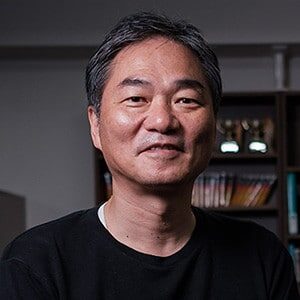
宮路 洋一
Born in 1963, member since 2019
Game Producer, Programmer
Début game:
1982 – PC-6001 AX-1 (ASCII)
Main gamography:
1985 – Thexder (Game Arts)
1987 – Gambler Jikochūshinha (Game Arts)
1997 – Gradia (Game Arts)
2002 – Gundam Network Operation (Bandai)
Statement from the member:
The work of preserving vanishing past works for future generations is a meaningful mission.
I established Game Arts in 1985, thinking “I really want to elevate games to the stature of art!” I was 21 back then. It was the age of amateur game creators in Akihabara, and now it has already been 40 years since I entered the game industry. My own game production followed the history of the development of computer technology. As it was unfolding, I was especially curious about what I could express with games as capacity increased. That, and network games.
With the appearance of CDs (taking 1985 as the standard date for presentation) the increase in capacity became visible on the horizon. This could enable games to reach an expressive richness comparable to that of, for instance, novels (book form), manga, and films. As a consequence, I envisioned myself raising them to the status of other arts and creative industries.
At present, the development of networks rendered capacity basically unlimited. Games have become a tool for creators to express themselves freely and richly.
Unfortunately, current games often resemble one another, and despite having achieved expressive freedom, it seems to me that there is a lack of variety.
In all of this, the indie game space is blossoming with people who are looking back to old games and creating works that reproduce those unique game qualities with the current expressive tools. In the past, it was precisely because of the limitations that many good works came to light after serious thought about what ideas and feelings one wanted to condense and transmit. In this context, and also for the growth of the game industry, the passing down of great and unique works of the past that are disappearing becomes a deeply meaningful act.
I truly wish the best for the endeavors of the Game Preservation Society for the development of global game culture.
Biography:
Miyaji was a young personal computer enthusiast and frequenter of Akihabara’s stores in the second half of the 1970s. There he found a job that allowed him to work on the porting of applications, among other things, and then he began working for ASCII as a software developer mostly for PC-6001 and MSX. In 1985 he founded Game Arts with his younger brother. Among many releases for PC such as Gambler Jikochūshinha, the company started with Thexder and Cuby Panic. Later, the focus shifted to Sega and the porting of titles to consumer platforms. Some examples of these projects are Lunar, Grandia and Gungriffon. After his role in the development of Super Smash Bros., Miyaji resigned from Game Arts. Currently, he is the president and chief executive officer at Sieg Games.
Other works:/strong>
SX-2 German Africa Armored Corps (ASCII)
Grandia (Game Arts)
Lunar: The Silver Star (Game Arts)
Lunar: Eternal Blue (Game Arts)
Gungriffon (Game Arts)
Chen Uen’s Romance of the Three Kingdoms (Game Arts)
Portrait: Nicolas DATICHE
Page updated on: 2024-12-08